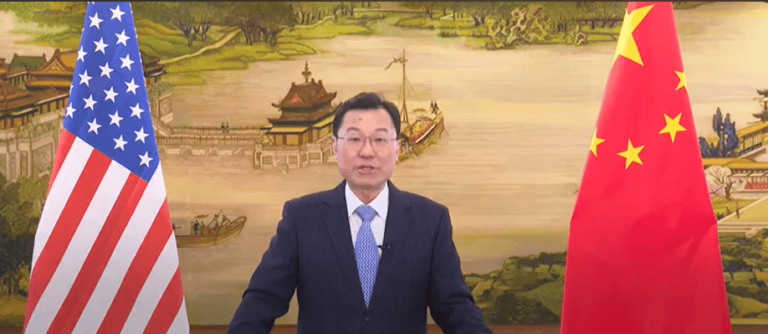“There’s no turning back”: Mark Carney asserts that a pivotal moment in US relations has transpired during Donald Trump’s presidency. The newly appointed prime minister has stated that Canada must no longer depend on its neighbour.
Canada and the United States boast an extensive border—and, for the time being, a great deal more besides. From trade and military cooperation to closely aligned security policies, the neighbors have generally maintained a harmonious relationship. However, as stated by Canada’s newly appointed Prime Minister, Mark Carney, that era has come to an end.
He asserts that he views US President Donald Trump’s assertive tariff strategy as a pivotal moment in the dynamics of relations with the United States. “The previous bond we shared with the United States, rooted in the deepening integration of our economies and a close partnership in security and military matters, has come to an end,” Carney remarked to reporters in Ottawa on Thursday.
The conduct of Trump has irrevocably altered the dynamics between the adjacent nations. “There’s no turning back,” Carney remarked, further asserting that the US is “no longer a dependable ally.”
Simultaneously, Carney revealed plans for a forthcoming meeting with Trump. Nevertheless, he stated that he would refrain from discussing trade matters with the US administration until the president demonstrated “respect” for Canada.
In recent weeks, Trump has consistently threatened to annex Canada’s northern neighbor and has derided Carney’s predecessor, Justin Trudeau, referring to him as the “governor” of a prospective “51st state” of the USA. As anticipated, this was met with considerable disapproval in Canada – and it also sparked outrage on the global stage.
Carney further indicated that his nation would take countermeasures in response to the car import tariffs declared by the US on Wednesday. “In light of these recent tariffs, our course of action is to resist, safeguard, and develop,” he remarked. Canadian countermeasures would yield “the greatest possible impact in the US and the smallest possible impact in Canada.”
Yesterday, President Trump, representing the Republican party, declared a hefty 25 percent tariff on car imports from overseas, igniting a wave of strong international backlash. On Wednesday, at the White House, Trump announced that the tariffs would be imposed on all vehicles not manufactured in the United States. Their implementation is set for April 3.
Carney denounced the tariff announcement as a “direct assault” on Canadian workers and revealed plans for countermeasures. According to Carney, there are no restrictions when it comes to these countermeasures. He noted the additional charges imposed on the export of oil and potash, which play a crucial role in fertilizer production, to the United States. The Japanese Prime Minister, Shigeru Ishiba, followed suit. Brazil’s President Luiz Inácio Lula da Silva remarked that his nation “cannot stand still” in light of the tariffs imposed. China has cautioned that “there are no victors in a trade war.”
Countermeasures have been announced by the EU and various nations. Federal Minister of Economics Robert Habeck has urged for a display of “strength and self-confidence” within the EU. Discover further insights into the ramifications of the tariffs within the EU here.
The tariffs will be imposed on cars and light trucks, with the White House stating that payment is required beginning April 3 at 12:01 a.m. local time, which corresponds to 5:01 CET. They are implemented alongside the current surcharges. Subsequently, auto parts will also fall under the purview of the tariffs. The White House has indicated that car imports, which fall under the North American Free Trade Agreement with Canada and Mexico, could potentially face a reduced tariff rate, contingent upon the percentage of production that occurs within the United States.












+ There are no comments
Add yours